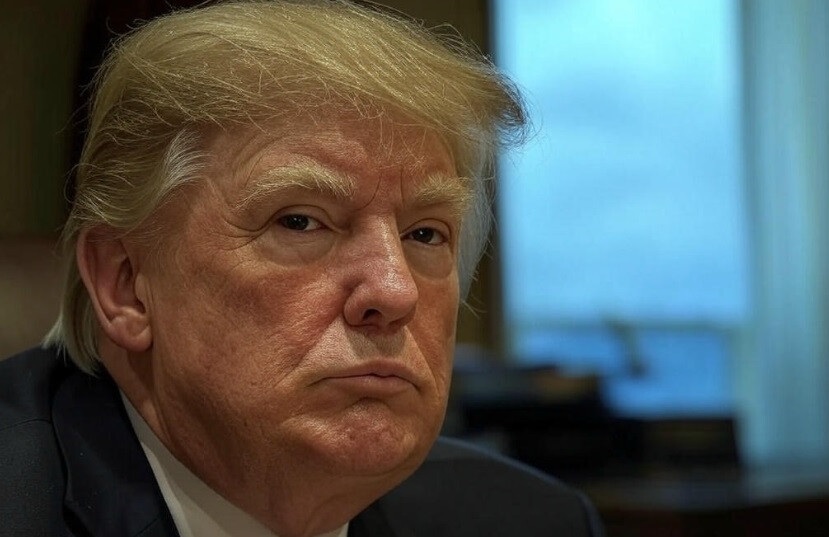
A recent study conducted by experts at the Brookings Institution has unveiled a significant decline in the perception of the United States among South Korean and Taiwanese voters following the inauguration of President Donald Trump. The findings, released on May 25th, are based on surveys conducted in July 2024 and subsequently in March and April 2025.
The polls, designed to gauge public sentiment towards the US as an ally and its role in regional security, reveal a concerning trend of diminishing trust and increasing anxiety. In South Korea, the proportion of respondents who considered the US a reliable ally dropped from 48.3% in July 2024 to 41.9% in March 2025, marking a 6.4 percentage point decrease. Similarly, in Taiwan, the trust in the US as a dependable ally plummeted from 33.6% in July 2024 to 23.1% in April 2025.
Furthermore, the perception of US willingness to intervene in potential conflicts has also deteriorated. Regarding the likelihood of US intervention in a North-South Korean war, positive responses from South Korean participants decreased from 69.6% in July 2024 to 60.2% in March 2025. In Taiwan, the belief that the US would assist in a cross-strait conflict with China fell from 45.5% to 37.5% during the same period.
The overall impression of the US has also taken a hit. The percentage of respondents with a negative view of the US surged from 6.9% to 16.2% in South Korea and from 24.2% to 40.5% in Taiwan when comparing pre- and post-Trump inauguration surveys.
A striking majority of respondents in both nations expressed skepticism about the state of global democracy under Trump's leadership. Only 8.6% of South Koreans and 8.3% of Taiwanese believed that global democracy had strengthened, while 66.8% and 64.2%, respectively, disagreed. Moreover, a substantial 65.2% of South Koreans and 65.1% of Taiwanese felt that their respective countries had become more vulnerable since Trump assumed office.
The authors of the study attribute this decline in US perception to the perceived unpredictability and uncertainty in US foreign policy under the Trump administration. They argue that both South Korea and Taiwan, which have historically relied on the US for diplomatic, military, and economic support to maintain regional stability, now view the US relationship as increasingly precarious.
This shift in perception has profound implications for regional security. The study's authors warn that the erosion of US credibility could significantly impact how South Korea and Taiwan respond to potential conflicts with North Korea or China. The diminished trust may lead to a reassessment of their strategic alliances and a search for alternative security arrangements.
Moreover, the decline in US prestige could influence domestic support for their governments' pro-US policies. Public opinion in both nations is increasingly critical of the US, potentially forcing their governments to adopt more cautious and independent foreign policy stances.
The study also highlights the broader implications for US soft power in the region. The perception of the US as a champion of democracy and stability has been a cornerstone of its influence in East Asia. However, the Trump administration's policies and rhetoric have undermined this image, raising questions about the reliability of US commitments.
Analysts suggest that this erosion of trust stems from several factors, including Trump's "America First" policy, his transactional approach to international relations, and his perceived disregard for traditional alliances. His administration's withdrawal from international agreements and trade disputes have further fueled concerns about US reliability.
The findings underscore the importance of maintaining strong and predictable alliances in the face of growing geopolitical challenges. As tensions in East Asia escalate, the US must address the concerns of its allies and reaffirm its commitment to regional security. Failure to do so could have far-reaching consequences for US influence and stability in the region.
The study concludes that the US must prioritize rebuilding trust with its allies in South Korea and Taiwan. This can be achieved through consistent and predictable foreign policy, clear communication of its strategic goals, and a renewed commitment to multilateralism and international cooperation.
In summary, the Brookings Institution's study paints a concerning picture of declining US influence in East Asia. The erosion of trust among key allies like South Korea and Taiwan poses significant challenges to US foreign policy and regional stability. Addressing these challenges will require a concerted effort to restore the US's image as a reliable and trustworthy partner.
[Copyright (c) Global Economic Times. All Rights Reserved.]






























